In the early age of rocket motion it was assumed by many peope that a rocket would not work in outer space becaue there was no air for the exhaust gases to push against. Explain why the rocket does work in outer space.
Step by step video & image solution for In the early age of rocket motion it was assumed by many peope that a rocket would not work in outer space becaue there was no air for the exhaust gases to push against. Explain why the rocket does work in outer space. by Physics experts to help you in doubts & scoring excellent marks in Class 11 exams.
Updated on:21/07/2023Topper's Solved these Questions
- LINEAR MOMENTUM & ITS CONSERVATIONBOOK - PHYSICS GALAXY - ASHISH ARORACHAPTER - LINEAR MOMENTUM & ITS CONSERVATIONEXERCISE - Conceptual MCQ s single option correct
30 Videos
- LINEAR MOMENTUM & ITS CONSERVATIONBOOK - PHYSICS GALAXY - ASHISH ARORACHAPTER - LINEAR MOMENTUM & ITS CONSERVATIONEXERCISE - Numerical MCQ s
75 Videos
- LINEAR MOMENTUM & ITS CONSERVATIONBOOK - PHYSICS GALAXY - ASHISH ARORACHAPTER - LINEAR MOMENTUM & ITS CONSERVATIONEXERCISE - Practive Exercise
28 Videos
- KINEMATICSBOOK - PHYSICS GALAXY - ASHISH ARORACHAPTER - KINEMATICSEXERCISE - Unsolved Numerical Pro.
83 Videos
- NEWTONS LAWS OF MOTIONBOOK - PHYSICS GALAXY - ASHISH ARORACHAPTER - NEWTONS LAWS OF MOTIONEXERCISE - Unsolved Numerical Problem
81 Videos
Similar Questions
Knowledge Check
In these questions, the 1st and The last sentence of the passage are numbered 1 and 6. The rest of the passage is split into four parts and named P, Q, R and S. These four parts are not given in their proper order. Read the sentences and find out which of the four combinations is correct.
1. A rocket burns a fuel that makes a great deal of gas at the back of the rocket.
P. Ordinary fuel will burn only in air, because it needs the oxygen in the air.
Q. A rocket can therefore travel outside the atmosphere in space where there is no air.
R. This gas pushes against the rocket and sends it forward.
S. However, rocket fuels have their oxygen in them and so they burn without air.
6. In fact, it will travel faster in space than in the air because the friction of the air is not there to slow it down.AQSRPBRPSQCSQPRDPRQSA rocket drifting sideways in outer spaces from position 'a' to position 'b' with constant velocity. At 'b' the rocket's engine starts to produce constant thrust at right angles to line 'ab'. The engine turns off again as the rocket reaches some point 'c'. Assume that rocket is subjected to no other forces.
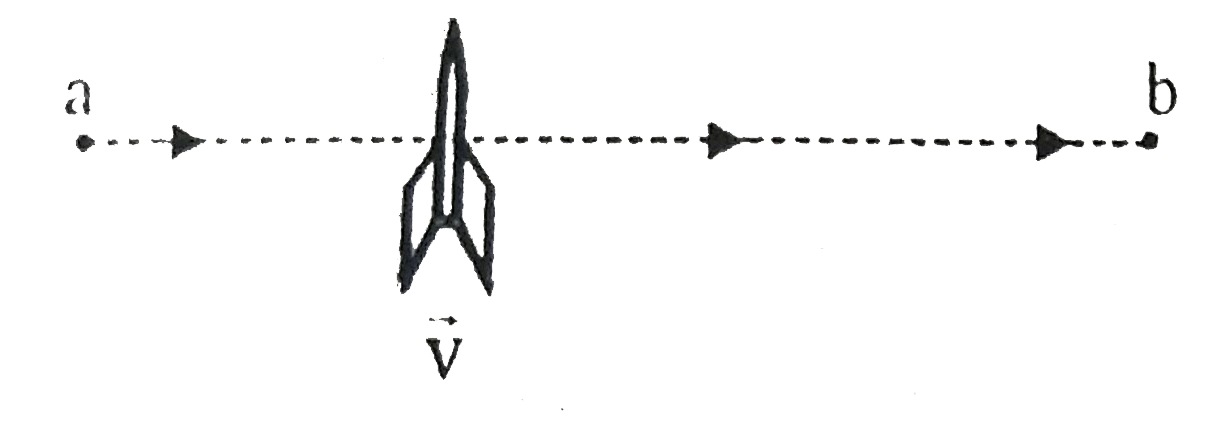 AThe path of rocket from point b to c will be
AThe path of rocket from point b to c will be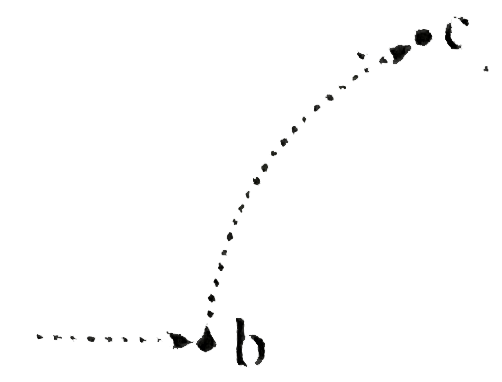 BThe path of rocket from point b to c will be
BThe path of rocket from point b to c will be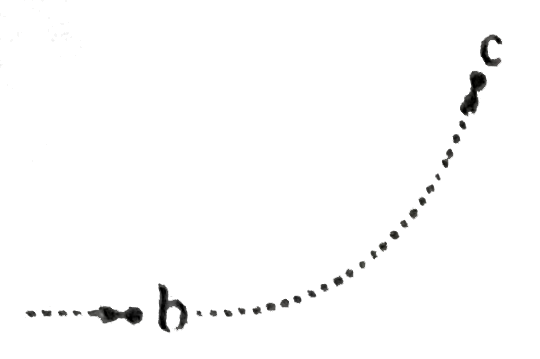 CThe path of rocket beyond c will be
CThe path of rocket beyond c will be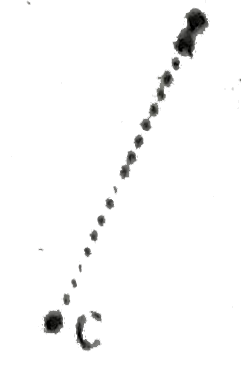 DThe speed continuously increases from b to c.
DThe speed continuously increases from b to c.Historians differ on exactly when the modern scientific age began, but certainly by the time Galileo Galilei, Rene C Descartes, and Isaac Newton had had their say, it was briskly under way. In those days, the new scientific mind-set was being steadily forged, as patterns found in terrestrial and astronomical data made it increasingly clear that there is an order to all the comings and goings of the cosmos, an order accessible to careful reasoning and mathematical analysis. These early pioneers of modern scientific thought argued that, when looked at the right way, the happenings in the universe not only are explicable but predictable. The power of science to foretell aspects of the future-consistently and quantitatively-had been revealed.
Early scientific study focused on the kinds of things one might see or experience in everyday life. Galileo dropped weights from a leaning tower (or so legend has it) and watched balls rolling down inclined surfaces, Newton studied falling apples (or so legend has it) and the orbit of the moon. The goal of these investigations was to attune the nascent scientific ear to nature's harmonies. To be sure, physical reality was the stuff of experience, but the challenge was to hear the rhyme and reason behind the rhythm and regularity. Many sung and unsung heroes contributed to the rapid and impressive progress that was made, but Newton stole the show. With a handful of mathematical equations, he synthesized everything known about motion on earth and in the heavens, and in so doing, composed the score for what has come to be known as classical physics. In the decades following Newton's work, his equations were developed into elaborate mathematical structures that significantly extended both their reach and their practical utility. Classical physics gradually became a sophisticated and mature scientific discipline. But shining clearly through all these advances was the beacon of Newton's original insights.
Which word/phrase does the writer use to describe the potential of the great persons mentioned here?AnascentBrhyme and reasonCrhythm and regularityDaccessible
Rama watched in discovery channel that ini outer space, at greater heights above the surface of the Earth where atmosphere does not exist appears completely dark. Explain what would be the reason for this?
View SolutionRama watched in discovery channel that ini outer space, at greater heights above the surface of the Earth where atmosphere does not exist appears completely dark. Explain what would be the reason for this?
View SolutionComponents of loudspeaker :
A loudspeaker consists of permanent magnets, basket, voice cails, flexible supension & rigid speaker cone as shown in figure.
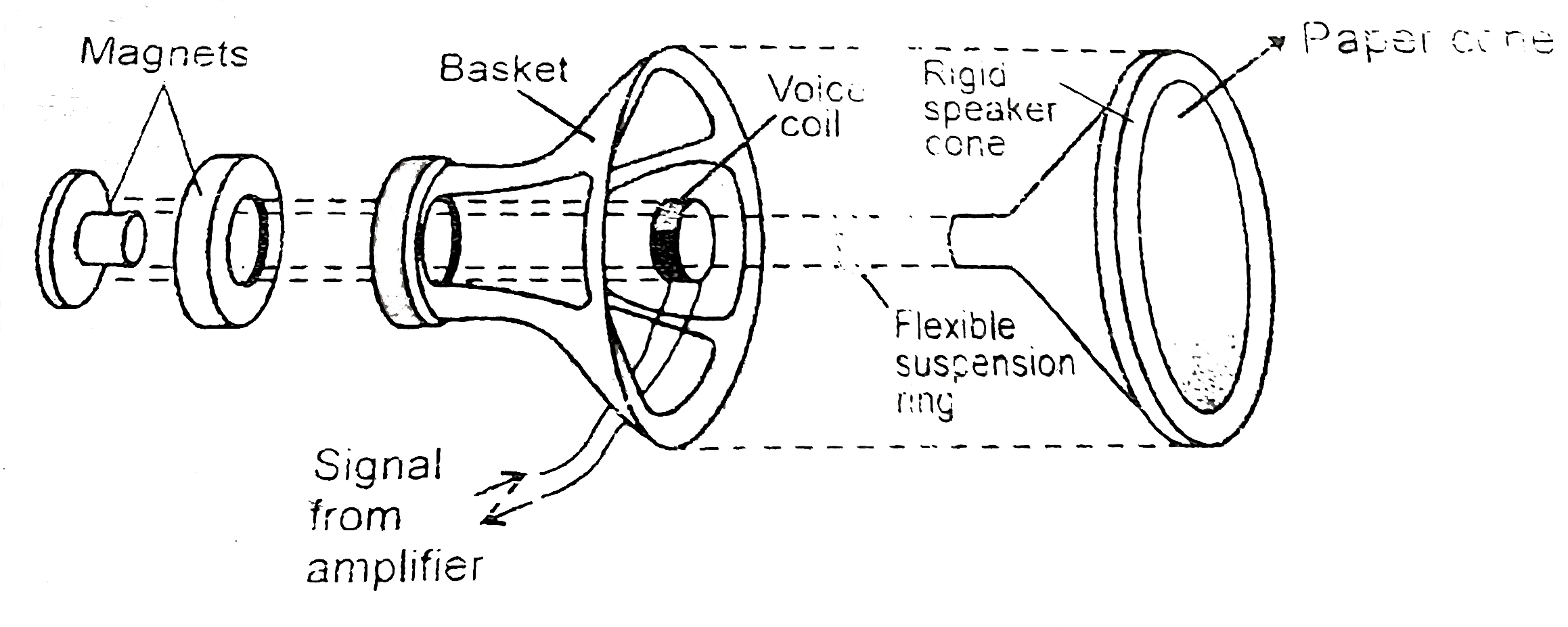
Loudspeaker principle
A light voice coil is mounted so that it can move freely inside the magnetic field of a strong permanent magnet. the paper cone is attached to the voice coil and attached with a flexble mounting to the outer ring of the support .Because there is a definite equilibrium position for the speaker cone and there is elasticity of the mounting structure, there is inevitably a free cone resonant frequency like of a mass on a spring. The frequency can be determined by adjusting the mass and stiffness of the cone and voice coil
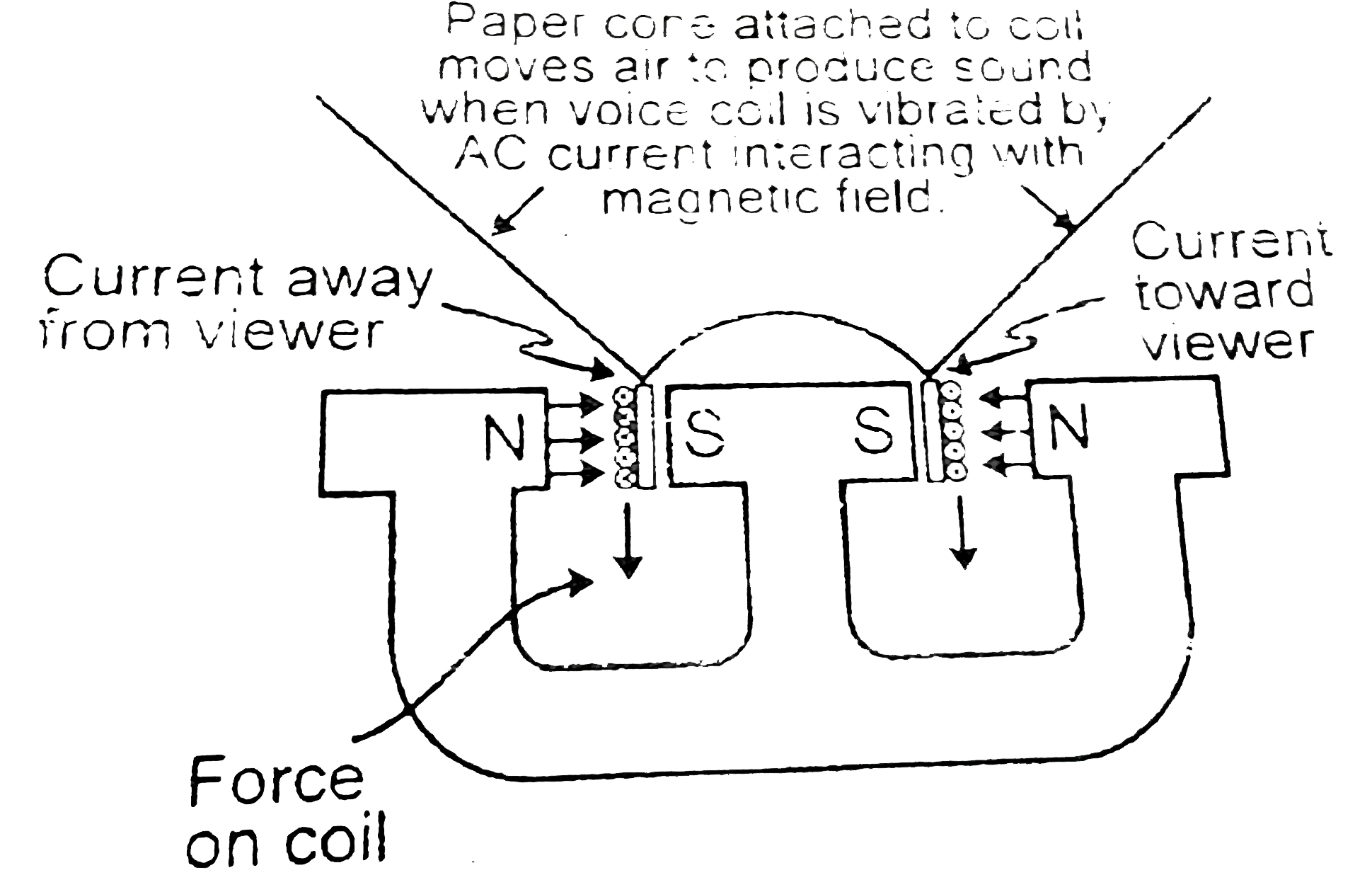
Working :
The ratio drives a rapidly changing current through the coil. The current follows that vibrations of speech and the electromagnetic force follows the current changes, pushing the paper cone. Finally the air in front of the loudspeaker is set into vibration following the cone's motion, and sound waves are transmitted to the listener
The principle of loudspeaker is :
View SolutionComponents of loudspeaker :
A loudspeaker consists of permanent magnets, basket, voice cails, flexible supension & rigid speaker cone as shown in figure.
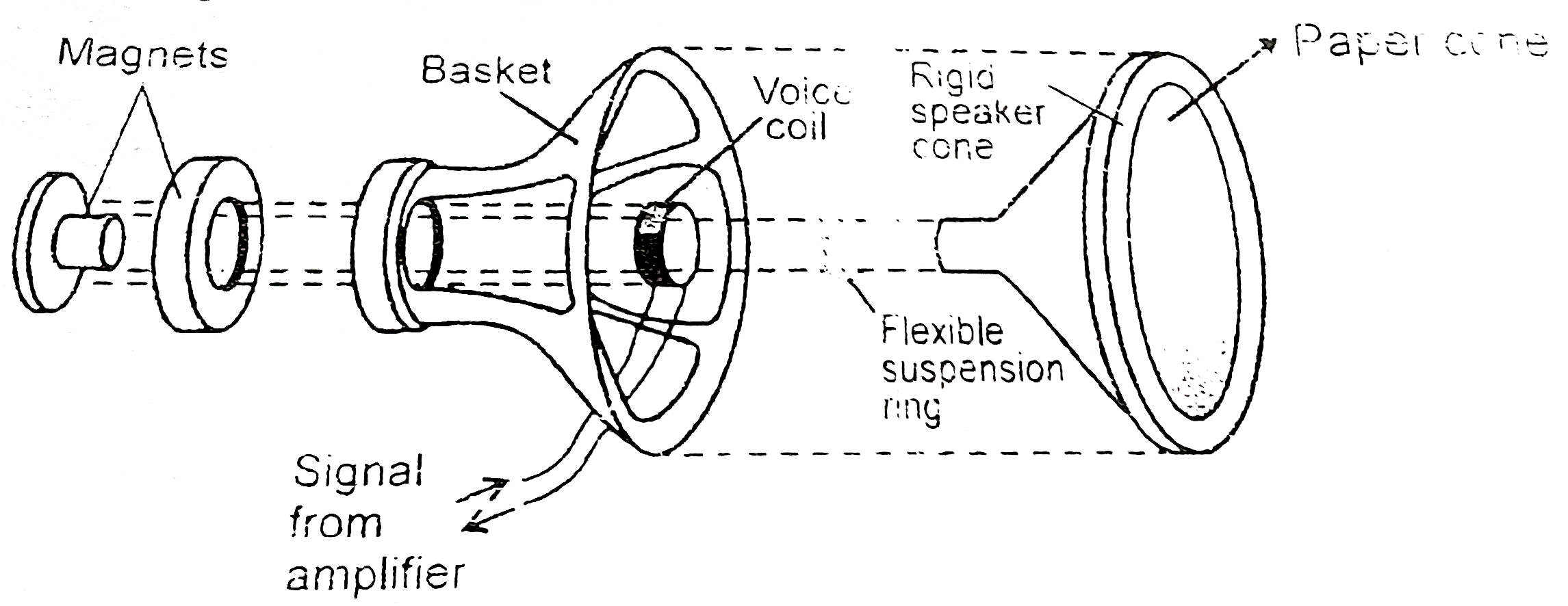
Loudspeaker principle
A light voice coil is mounted so that it can move freely inside the magnetic field of a strong permanent magnet. the paper cone is attached to the voice coil and attached with a flexble mounting to the outer ring of the support .Because there is a definite equilibrium position for the speaker cone and there is elasticity of the mounting structure, there is inevitably a free cone resonant frequency like of a mass on a spring. The frequency can be determined by adjusting the mass and stiffness of the cone and voice coil
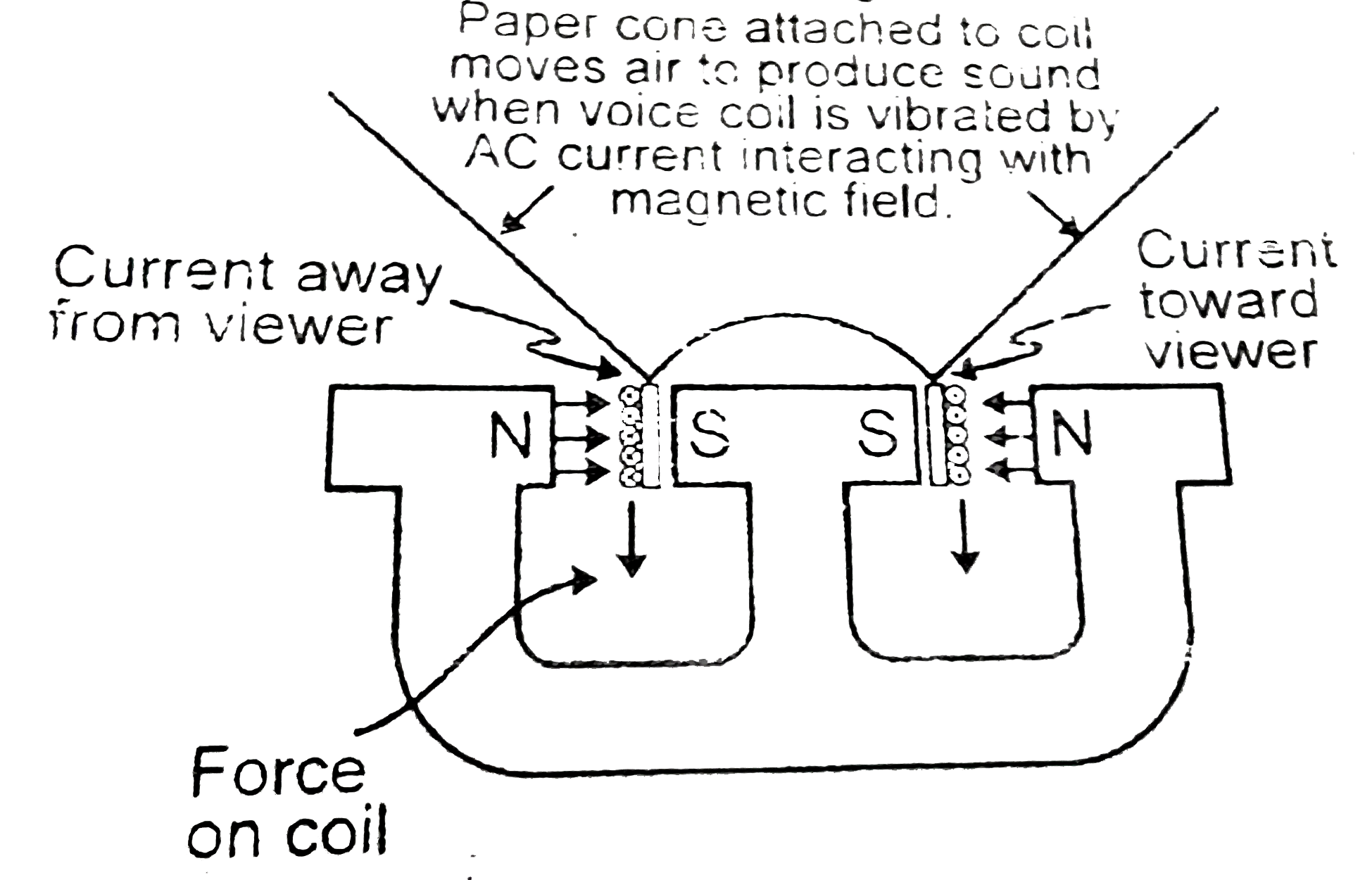
Working :
The ratio drives a rapidly changing current through the coil. The current follows that vibrations of speech and the electromagnetic force follows the current changes, pushing the paper cone. Finally the air in front of the loudspeaker is set into vibration following the cone's motion, and sound waves are transmitted to the listener
If the diameter of the cylindrical magnet, number of turns of the coil and cross-section area of the wire of the coil are all doubled, then the magentic force on the coil assuming the same potential difference , is (assume that value of magnetic field also gets doubled)
View SolutionComponents of loudspeaker :
A loudspeaker consists of permanent magnets, basket, voice cails, flexible supension & rigid speaker cone as shown in figure.
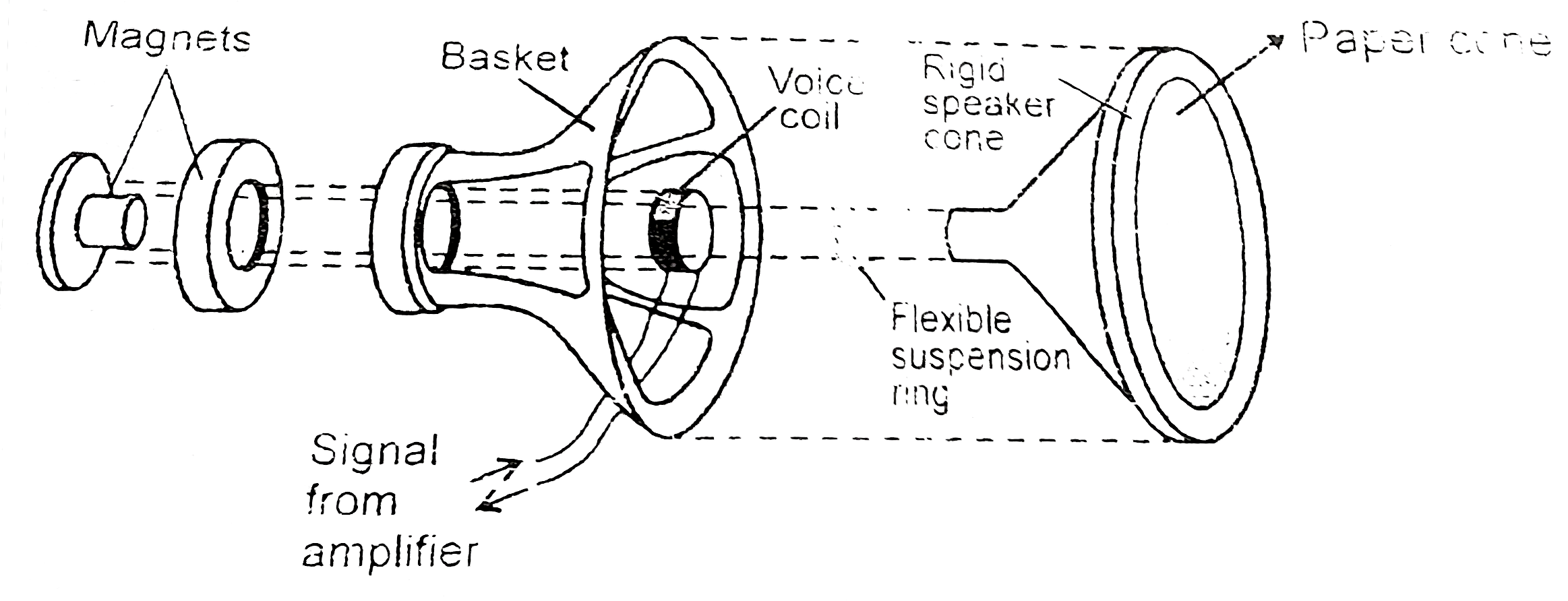
Loudspeaker principle
A light voice coil is mounted so that it can move freely inside the magnetic field of a strong permanent magnet. the paper cone is attached to the voice coil and attached with a flexble mounting to the outer ring of the support .Because there is a definite equilibrium position for the speaker cone and there is elasticity of the mounting structure, there is inevitably a free cone resonant frequency like of a mass on a spring. The frequency can be determined by adjusting the mass and stiffness of the cone and voice coil
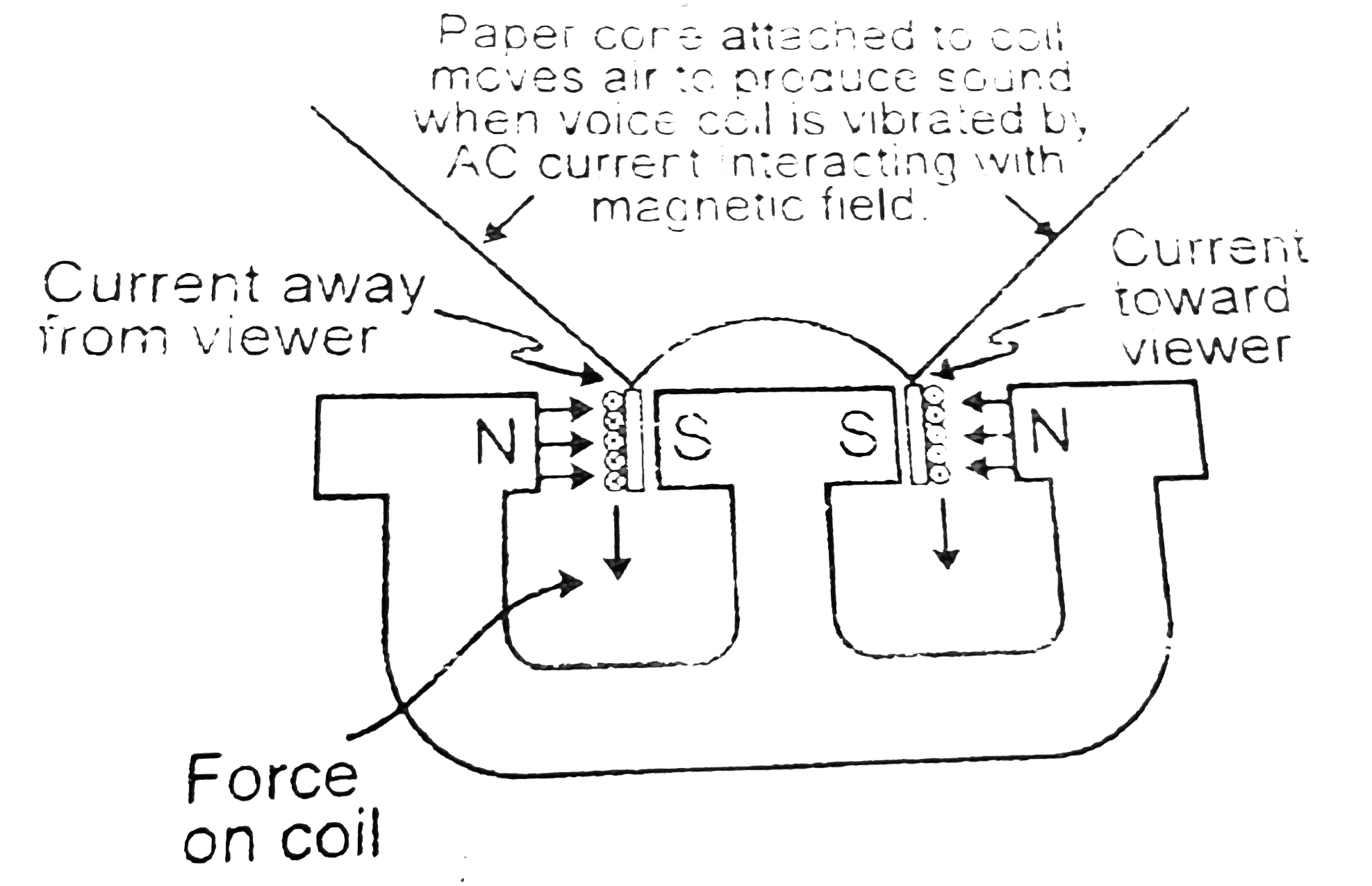
Working :
The ratio drives a rapidly changing current through the coil. The current follows that vibrations of speech and the electromagnetic force follows the current changes, pushing the paper cone. Finally the air in front of the loudspeaker is set into vibration following the cone's motion, and sound waves are transmitted to the listener
A voice coil in a loudspeaker has 40 turns of wire and loop-diameter 1 cm and the current in the coil is 1A. Assume that the magnetic field at each at the wire of the coil has constant magnitude 0.2 T and is directed at an angle 60∘ from the normal to the plane of the coil as shown in figure. The magnitude and direction of magnetic force on the coil is
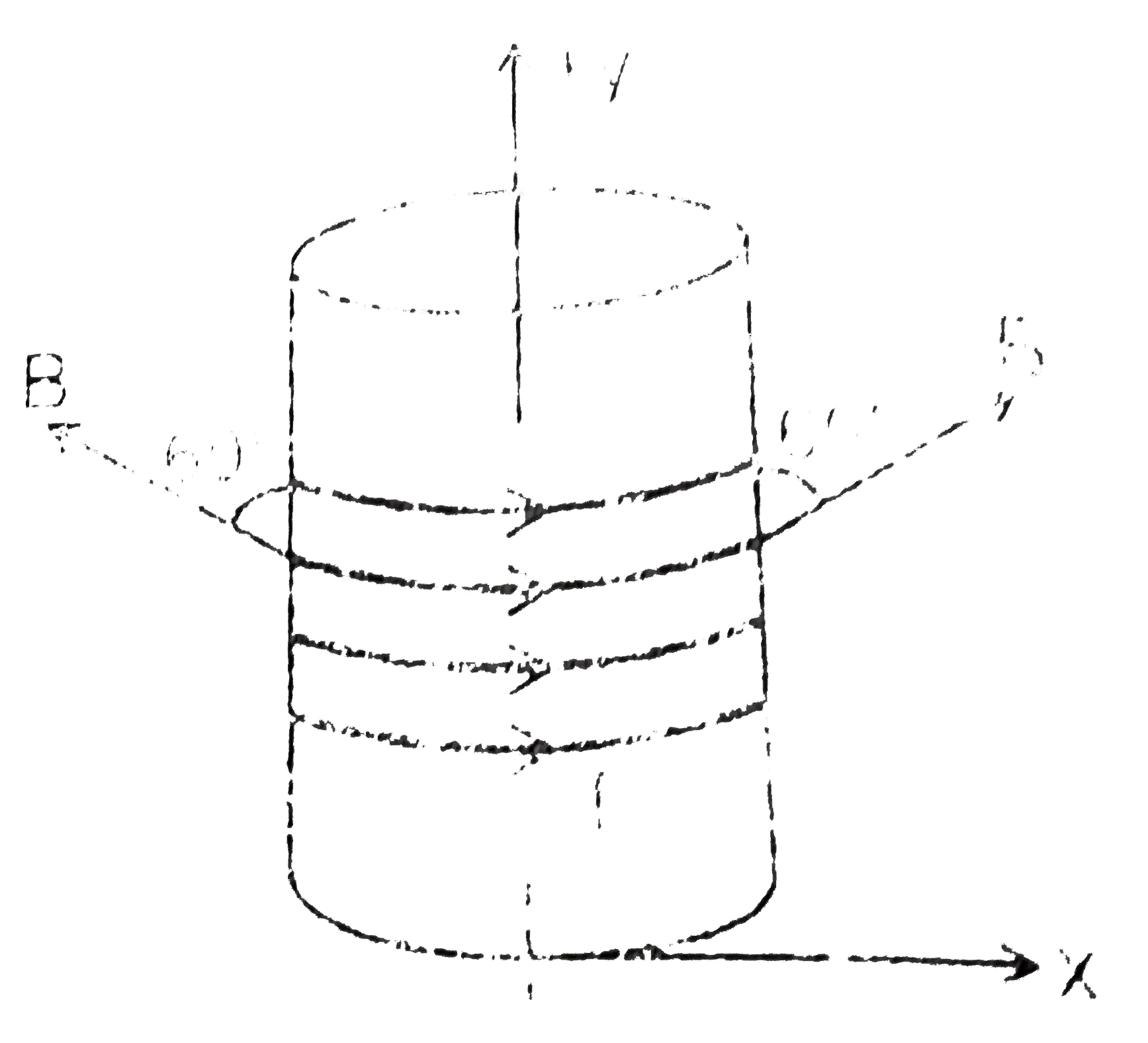
View Solution
